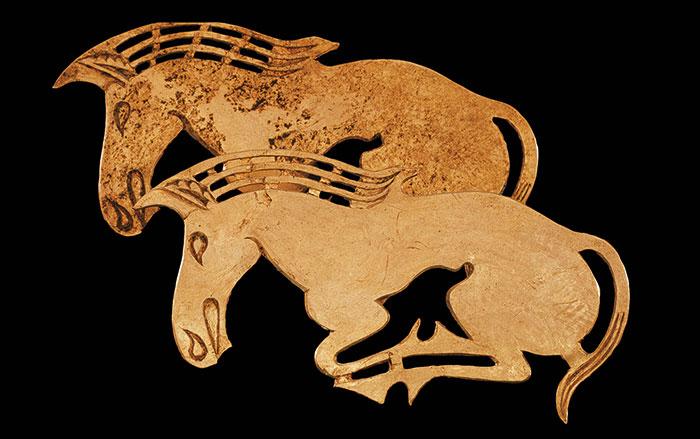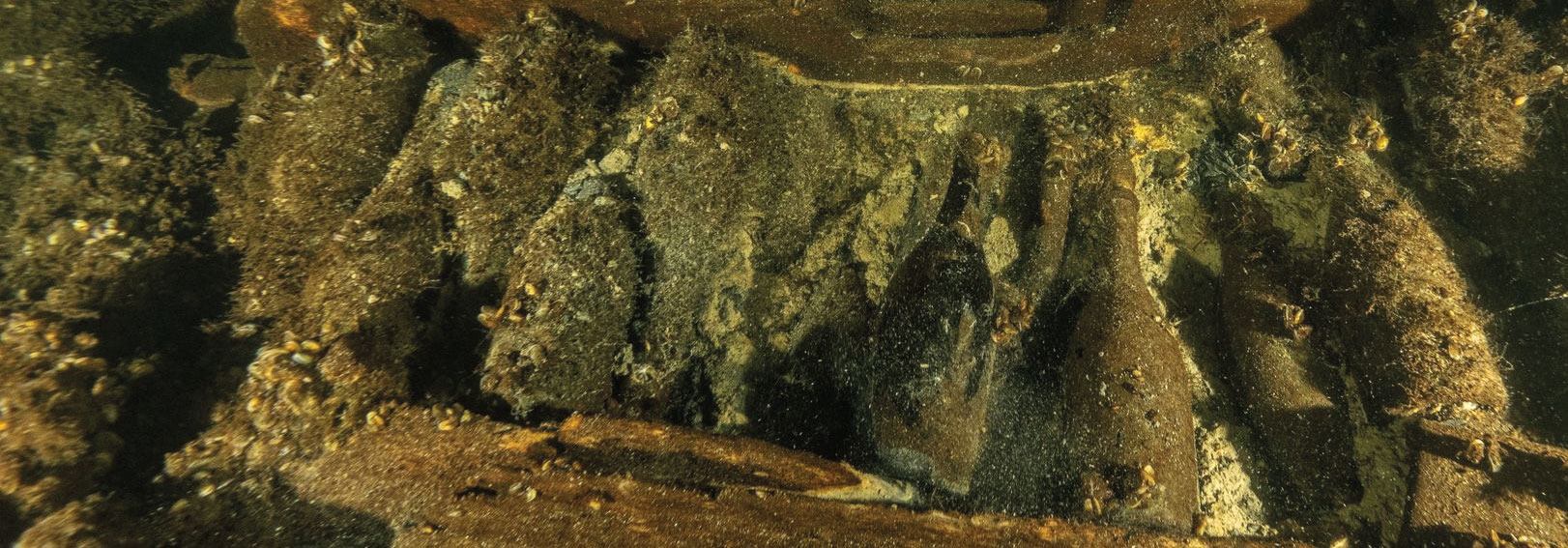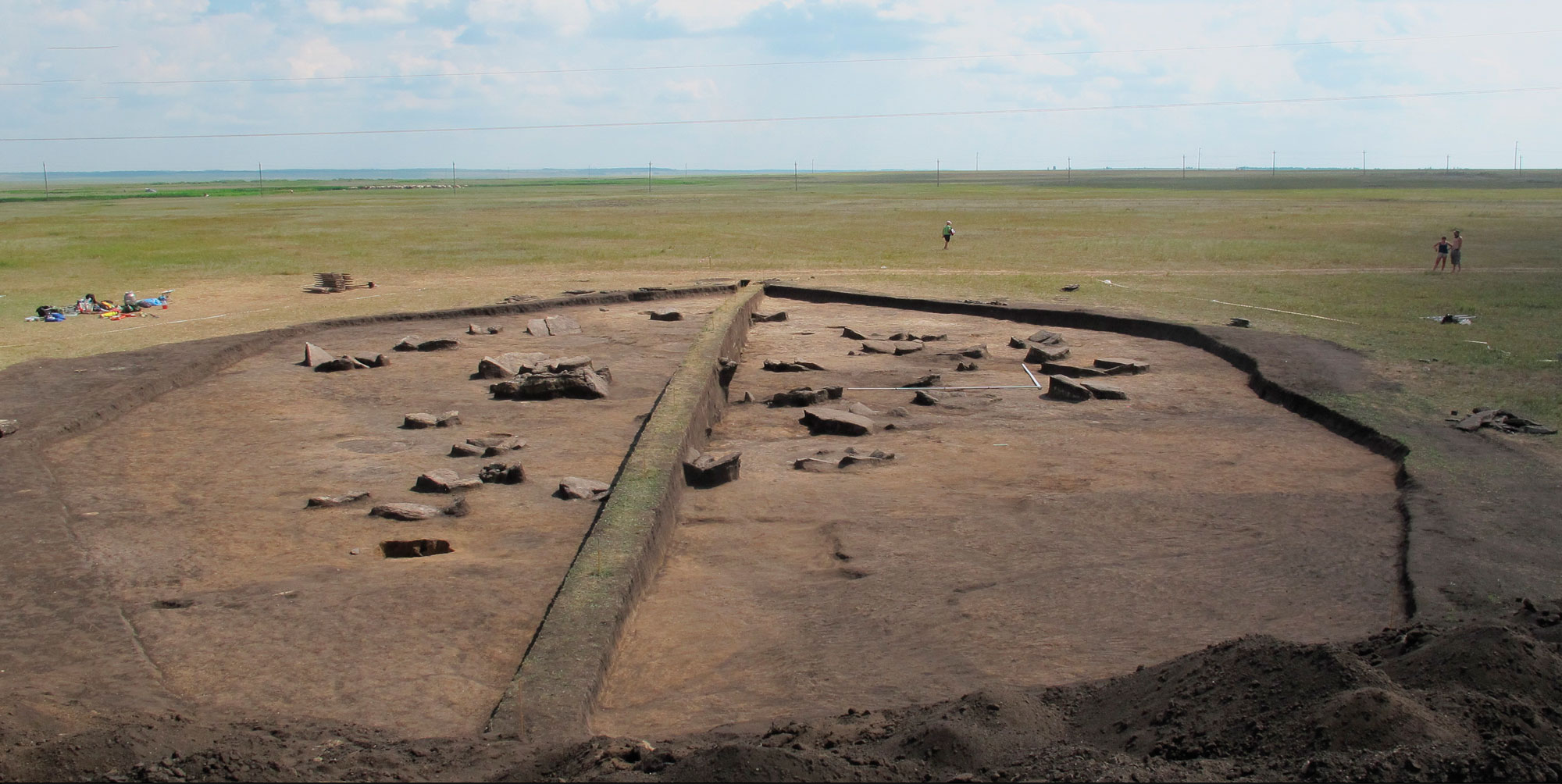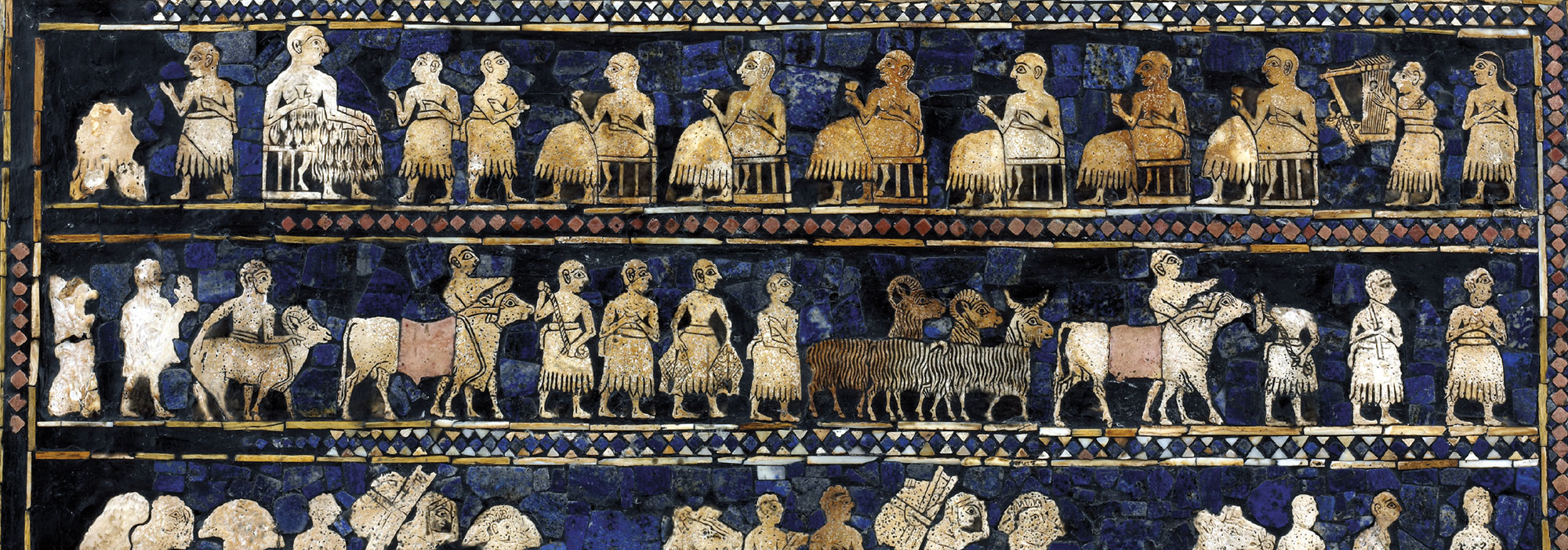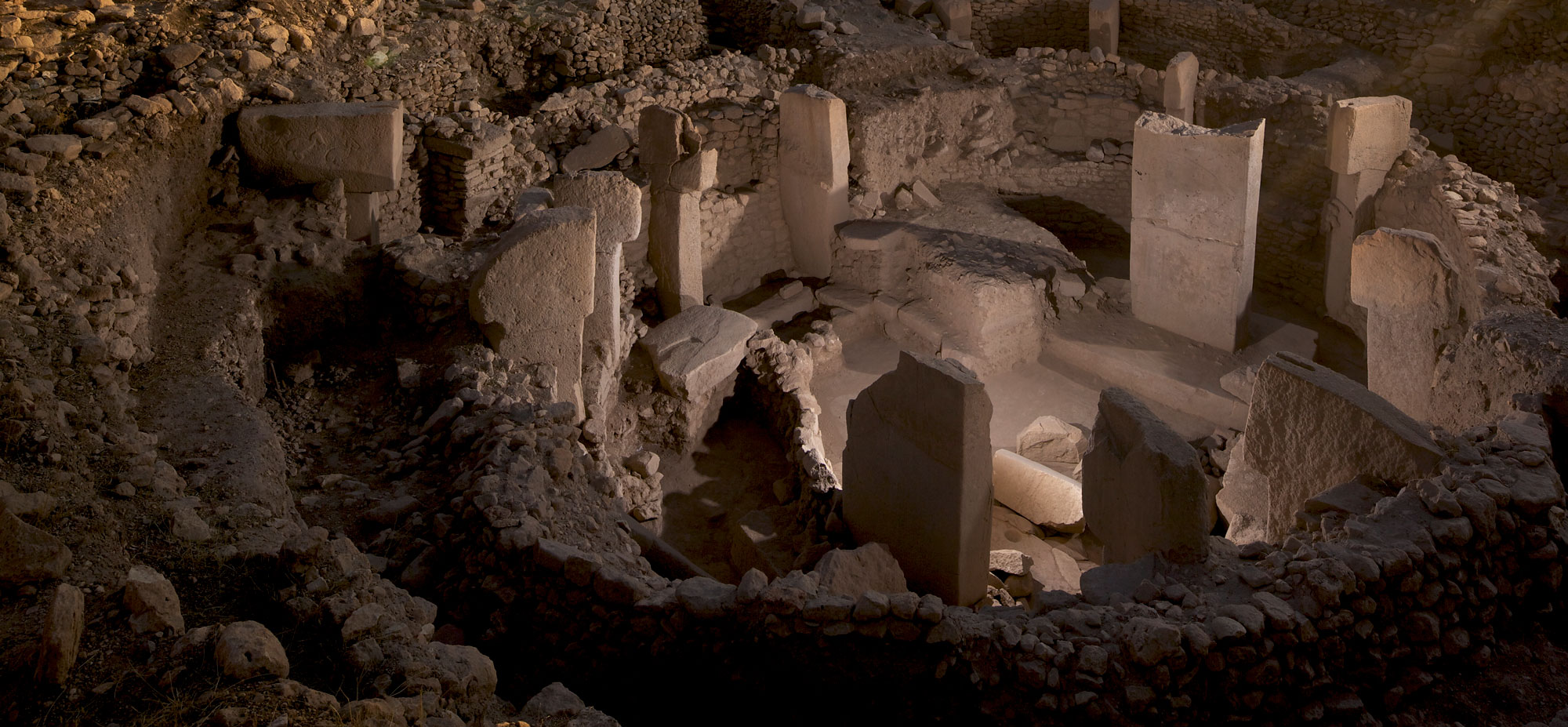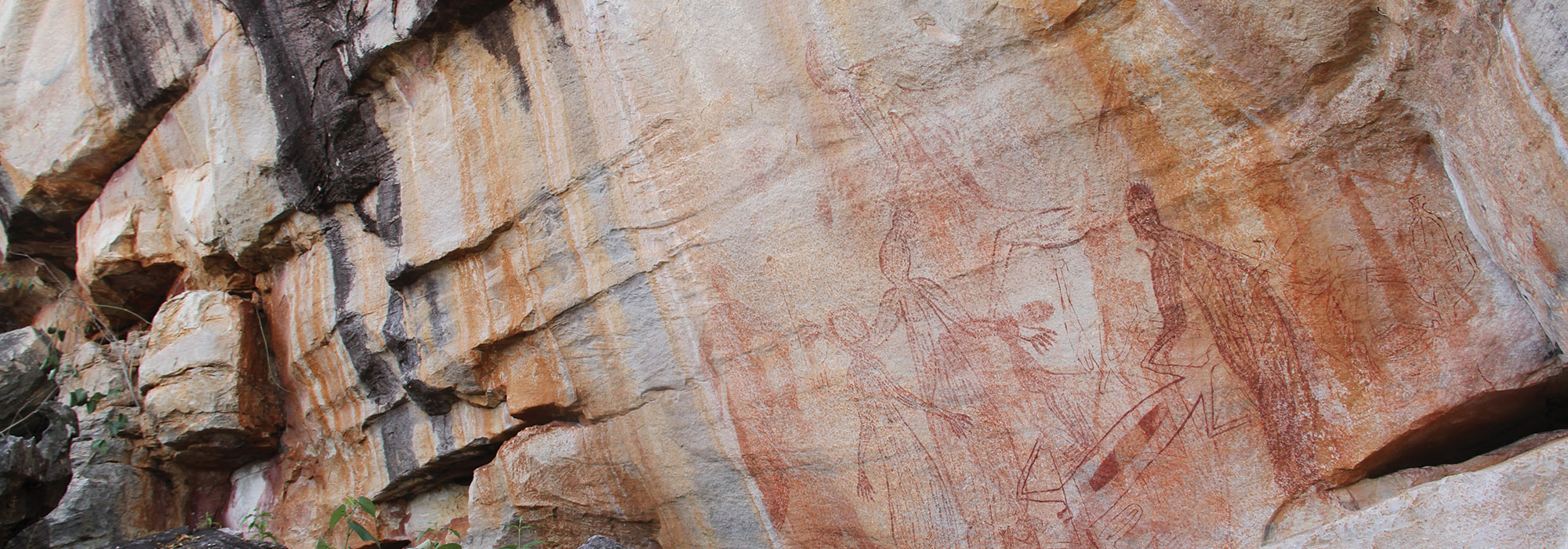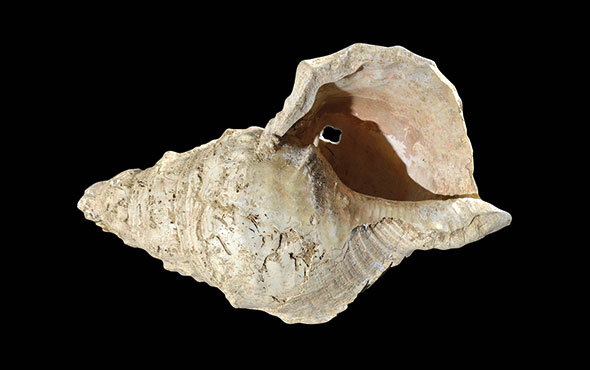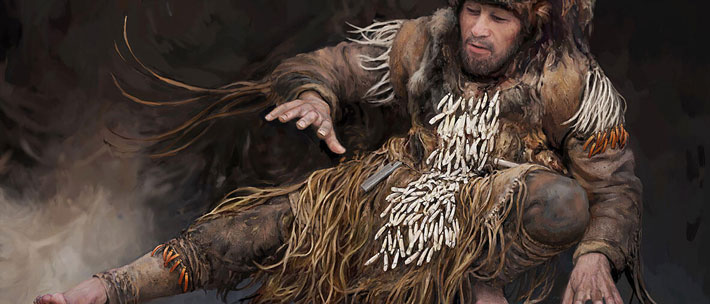
HELSINKI, FINLAND—According to a statement released by the University of Helsinki, auditory archaeologist Riitta Rainio and artist Juha Valkeapää danced for six consecutive hours while wearing elk tooth ornaments sewn in rows on an apron, and then examined the microscopic wear marks left behind on the teeth as they clattered against each other. The researchers then compared these wear marks to elk teeth recovered from four graves at Yuzhniy Oleniy Ostrov, a Late Mesolithic cemetery in northwestern Russia. More than half of the 177 burials at Yuzhniy Oleniy Ostrov contained elk tooth ornaments. Some of the burials contained more than 300 teeth. The study suggests that the distinctive marks on the prehistoric teeth were made over years or even decades of dancing. Rainio says the rattlers offer a clue to the soundscape experienced by Mesolithic hunter-gatherers. To read more about Mesolithic Russia, go to "World Roundup: Russia."



